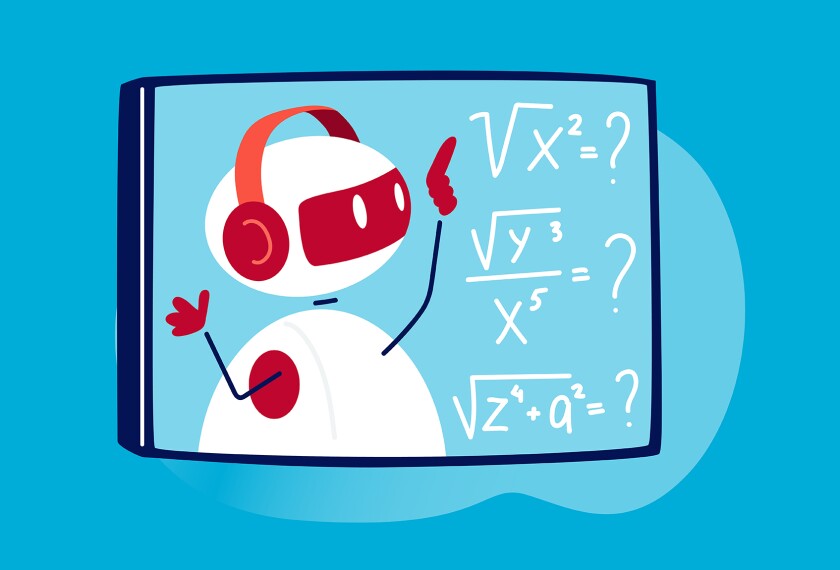Teens who have talked about artificial intelligence in school are more likely to use it responsibly, concludes a , a nonprofit that examines the impact of technology on young people.
Most teens use AI tools, whether they’ve learned about the technologies’ strengths and weaknesses, or not, Common Sense found.
About 70 percent of teens have used at least one kind of AI tool. A little over half—51 percent—have used Chatbots or text generators, such as ChatGPT, Microsoft Co-pilot, or Google’s Gemini, Common Sense found.
About half of students—53 percent—say they use AI for homework help. And about 2 in 5 use it to stave off boredom or to translate materials from one language to another.
The study results suggest that talking and learning about AI in school could have some significant benefits.
Fifty-five percent of the teens who reported using AI tools, and had talked about AI’s benefits and pitfalls in school fact-checked the information they received from AI tools—a key step for using AI responsibly given its propensity to spit out inaccurate or biased information. Forty-three percent of teens who use AI tools but had not discussed the technologies’ strengths and weaknesses in school check to make sure the tools are giving them accurate responses.
Eighty-seven percent of students who had class discussions about AI are also more likely to agree that AI tools might be used to cheat, while 73 percent of students who had not had class discussions of AI said the same.
What’s more, 7 in 10 students who had class discussions of AI said they believed they need to learn about the technology to be successful in the workplace, compared with half of those who did not have class discussions.
“When educators talk about this with their students, it makes a huge difference” in guiding them toward a better understanding of how to use the technology effectively and responsibly, said Amanda Lenhart, the head of research for Common Sense. “Kids do understand that [AI] is less likely to be accurate, it is likely to be biased once they’ve had these conversations. I think it shows us the importance and power of teachers in this space.”
Should teachers be talking more about AI with their students?
The problem? Not many educators are talking about AI with their students, according to the report.
Overall, 37 percent of teens said they have had class discussions or lessons about generative AI, compared with more than half—53 percent—who said they had not. Another 10 percent were unsure.
For the most part, parents aren’t aware of their children’s AI use, the survey found. Among parents whose children said they had used at least one generative AI platform, 37 percent thought their child had used generative AI. Twenty-three percent of these parents believed their child hadn’t used generative AI platforms. Another 39 percent were not sure.
The report is based on a nationally representative survey conducted from March to May of 1,045 adults in the United States who are the parents or guardians of one or more teens aged 13 to 18, and responses from one of their teenage children. All 18-year-old respondents were still in high school when surveyed.






